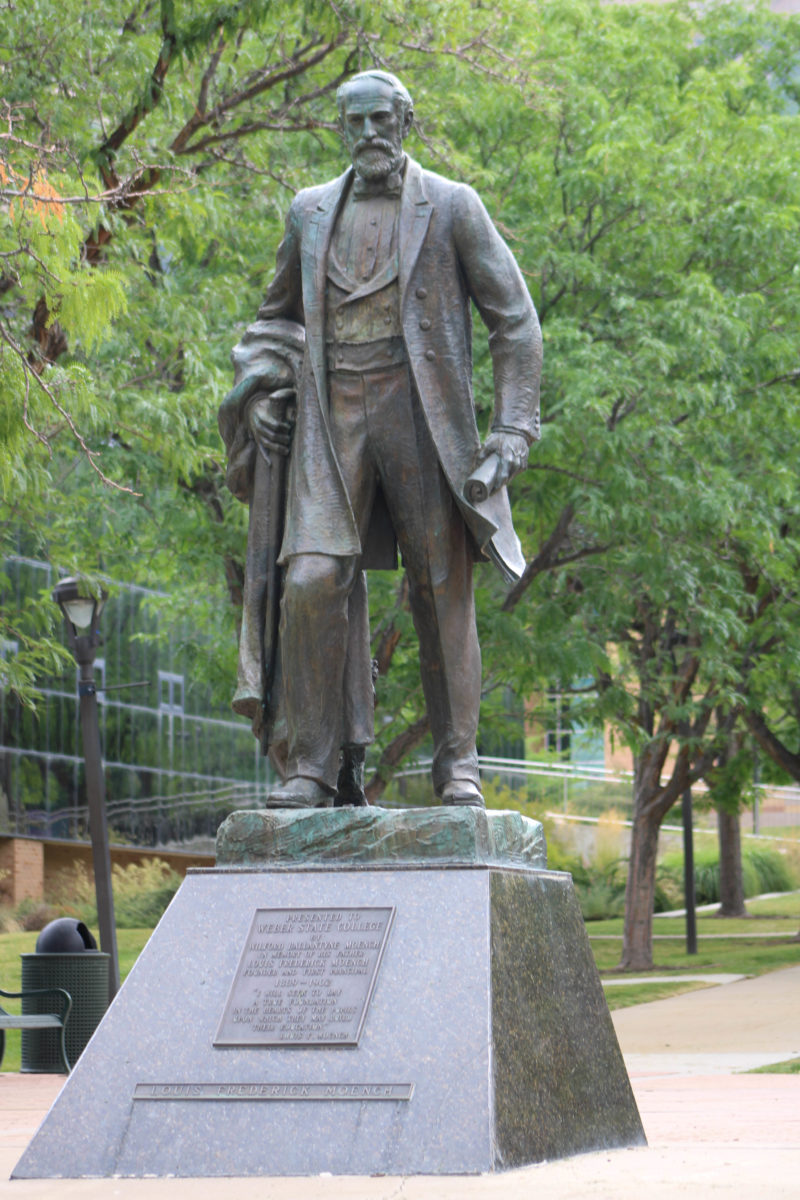
It seems counterintuitive that anyone who self-identifies as queer would seek or maintain membership within the LDS church, let alone encourage their children to participate, considering the organization’s outspoken stance against same-sex coupling since its inception.
Earlier this month, excommunicated LDS Church member and gay rights activist John Dehlin leaked the recent alterations to LDS Handbook 1—a reference for religious lay leaders—which stated that any child of a same-sex couple will not be baptized unless the he or she “…specifically disavows the practice of same-gender cohabitation and marriage.” Once the individual reaches 18 years of age, proselytized recruits are encouraged to denounce their “apostate” parents’ way of life.
On Thursday, Nov. 5, LDS Church spokesman Erik Hawkins publicly confirmed the amendment to the handbook, igniting furor and controversy.
Many were shocked. But to quote the eminent topical comedian Bill Burr, “What did you think they thought?” The community was in disbelief that the organization—who only seven years prior lobbied just under $190 million dollars to end gay marriage in California—would ostracize those who associated with LGBTQ community members.
Much of the surprise was due to superficially diplomatic gestures between the two spheres in the recent past, the earlier being the late LDS Prophet Gordon B. Hinckley’s official welcoming of homosexuals into the church in 1999—so long as they didn’t sexually transgress, that is, continue to be homosexual.
The more recent gesture involved one of Utah’s only openly gay Senators, Jim Dabakis (D), and four other locally influential gay-rights supporters meeting with church officials to diffuse tensions after a perceived affront to the LGBTQ community: Mormonnewsroom.org’s reference to a kiss between two gay men on church-owned property as “belligerent and profane behavior,” as reported in a concurrent article in the Washington Post.
What actually is surprising is just how sinister the organization believes homosexuality to be—in the new handbook, it advises that disciplinary council may be necessary under circumstances of “…attempted murder, forcible rape, sexual abuse, spouse abuse, intentional serious physical injury of others, adultery, fornication, homosexual relations (especially sexual cohabitation),” and the list goes on.
One of these things is not like the others, and it’s not attempted murder or forcible rape. This is dangerous doctrine.
Many who consider themselves devout members of the faith, homosexuals included (research has shown that 10-13 percent of college-age LDS men reported experimentation with homosexual behavior), have spoken out against these statements, but this is where logic casts a wrench into the whole situation.
The question that begs answering is this: If the tenants of the theological creed are in such stark contrast with one’s lifestyle, what leads a person to continue enduring such abuses of individuality and identity by the faith?
More importantly, how does one consolidate abiding by some edicts of the religious authorities while willfully disregarding others if they truly do believe that the statements come directly from a chain of communication leading to an individual in direct dialogue with God himself?
For 1,500 people, the consolidation between personal ethics and doctrine could not be justified. On Saturday, Nov. 14, before the Salt Lake City Temple, 1,500 church members dissented in a mass resignation, a veritable, modern exodus. And they are to be commended.
The will and bravery required to denounce one’s faith when it violates his or her moral compass is admirable, especially in those who’ve been deeply entrenched in the doctrine their entire lives. For the sake of moral integrity, these individuals have endured Herculean internal strife and emerged victorious and of a higher caliber: the hero archetype.








